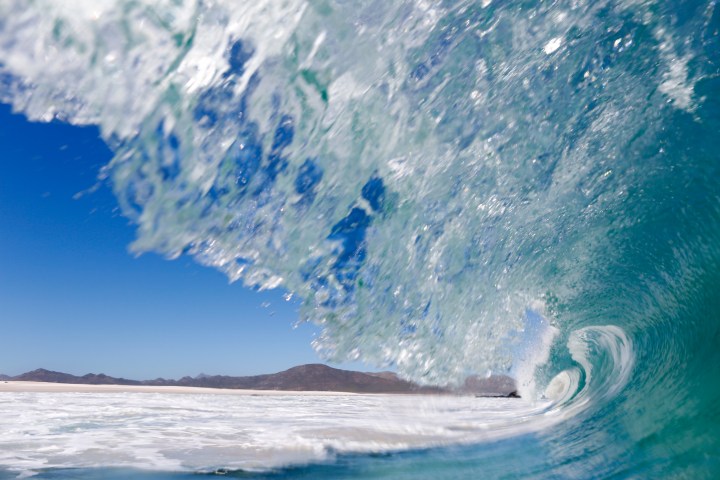ISS TODAY
Africa can revive 2020 as an ocean super-year

Covid-19 dented the world’s blue economy aspirations, but African states can still accomplish a lot this year. South Africa, in particular, can use this opportunity to exercise its leadership responsibilities on the continent and worldwide to revive African ocean initiatives.
First published by ISS Today.
This was meant to be the ocean’s year. Four high-level United Nations meetings and a web of international conventions on biodiversity, sustainable development and climate change were meant to secure agreement among states on better ocean policies.
Observers anticipated that 2020 would deliver a substantially enhanced regime for long-term collaboration, good governance and recognition of the ocean’s role in mitigating the effects of climate change.
Instead, when Covid-19 hit and the restrictions began to bite, some of this optimism was put on hold as events were postponed and some cancelled.
“There’s no getting away from the fact that the ocean super-year has been diminished,” says Peter Thomson, the United Nations secretary-general’s special envoy for the ocean.
“Let us not take our focus off the fact that our greatest challenge is getting back into a relationship with nature, our climate and the ocean, which is based on respect and balance and gives us a secure place on planet Earth.”
Time to secure conventions and agreements before they increase in cost, controversy and complexity, is being lost. Many maritime stakeholders in governments and beyond have found themselves in the position of again persuading policymakers and the public about why ocean governance issues must be urgently addressed.
A recent Organisation for Economic Cooperation and Development report on development assistance in support of the ocean economy doesn’t make for happy reading. It estimates that an average of only $3-billion a year was allocated for the ocean economy between 2013 and 2018.
Of this, only $1.5-billion was allocated on average annually in support of sustainable ocean economy policies, which it calculates to be equivalent to just 0.8% of global official development assistance.
Vital ocean opportunities are simply not receiving the support they need.
This trend threatens to widen the gap between developed and developing countries in terms of their commitment to climate change and sustainable development.
Most of this development assistance would not have been focused on African states and communities, and the prospects of this improving seem bleak.
African states face a dilemma that few others confront, while also lacking the tools and capacity to address it. They must increase political attention and resources for dealing with emerging challenges related to Covid-19 recovery, while still focusing on longer-term and more costly solutions rooted in sustainability.
With the lack of face-to-face meetings due to Covid-19, stakeholders are for now making do with virtual platforms and intersessional meetings. These cannot replicate all the benefits of face-to-face networking and negotiation, but can reduce delays in multilateral decision making on significant matters.
For instance, the fourth (and final) session of the intergovernmental conference on a new international legally binding instrument for the high seas, under the United Nations Convention on the Law of the Sea, should still be completed in 2021. This involves the conservation and sustainable use of marine biological diversity in areas beyond national jurisdiction.
The outcomes of these events are expected to shape the international agenda regarding ocean governance for the next 10 years, ahead of the UN Decade of Ocean Science for Sustainable Development 2021-2030.
One of the most significant developments for Africa should still occur in 2020. The continent’s long-needed blue economy strategy is still on track to be ready by 2021, when the AU Commission is being reformed.
The decision by the African Union (AU) and African countries to develop the strategy was prompted by the successful 2018 Global Conference on Sustainable Blue Economy held in Kenya.
This ongoing process to finalise the strategy is an outstanding opportunity for the AU to convene all major stakeholders to map out commitments and processes. These include the current African group negotiations and national pledges to enhance ocean sustainability.
African states have important roles to play too. For example, Seychelles – the AU Blue Economy champion – is seen as a leader for small, developing states seeking to build ocean economies and encourage others to commit to green and blue development. The election to the UN Security Council in 2021 of ocean-prioritising countries such as Norway should significantly support these efforts.
Delays as a result of Covid-19 restrictions could have a positive side, as they allow time to resolve differences and achieve more robust agreements. Shifts in the way meetings are held could help deal with long-standing calls to make gatherings more affordable, inclusive and accessible.
For example, evidence suggests that virtual meetings may benefit those from resource-poor countries who can’t attend all working and preparatory groups. The premium on travel should require thorough national coordination and agreement before meetings too.
Whether online sessions will prove more productive than face-to-face ones remains an open question, but it adds another option for global involvement and buy-in.
Each year in September, the International Maritime Organisation dedicates a day to raising awareness about the maritime domain and its importance for the world. In 2020 it was meant to be convened by South Africa, which has moved the event to 2021, with celebrations planned to take place online.
South Africa can use this extended opportunity to exercise its leadership responsibilities in Africa and worldwide to revive dedicated African ocean initiatives.
Next year will be crucial for the world’s oceans and will determine the international agenda for the next decade. The AU must ensure that African voices are heard and accounted for. Against the backdrop of Covid-19 economic recovery and its attendant socio-economic challenges, a focused, unified and holistic approach is needed. DM
Timothy Walker, Maritime Project Leader and Senior Researcher. Denys Reva, Research Officer, ISS Pretoria.

















 Become an Insider
Become an Insider
Comments - Please login in order to comment.